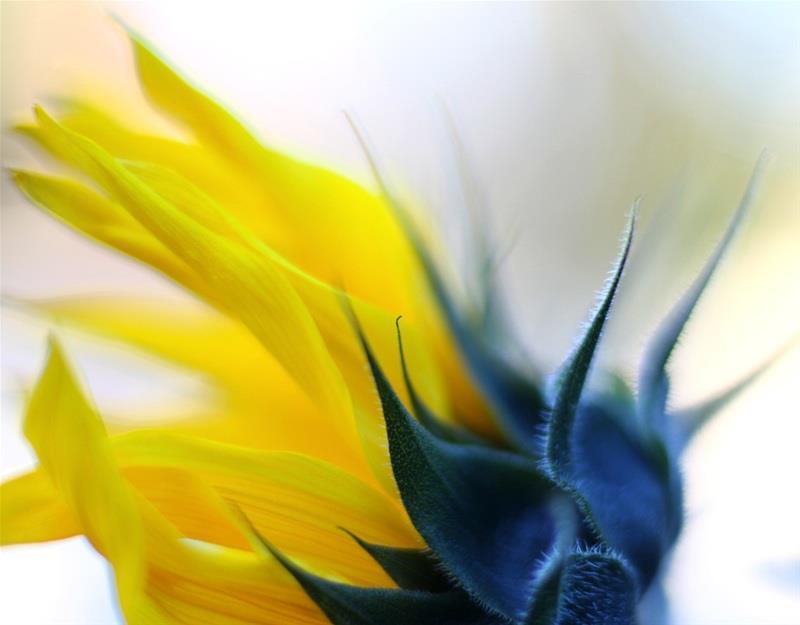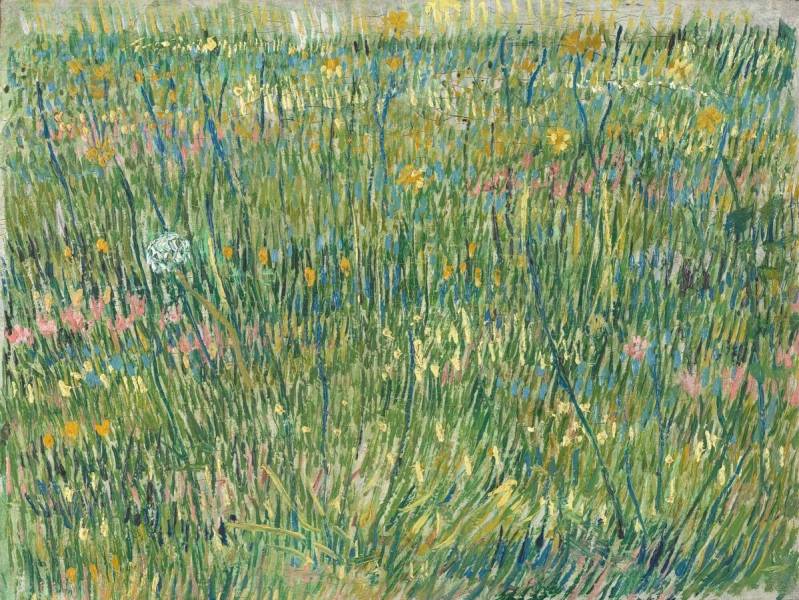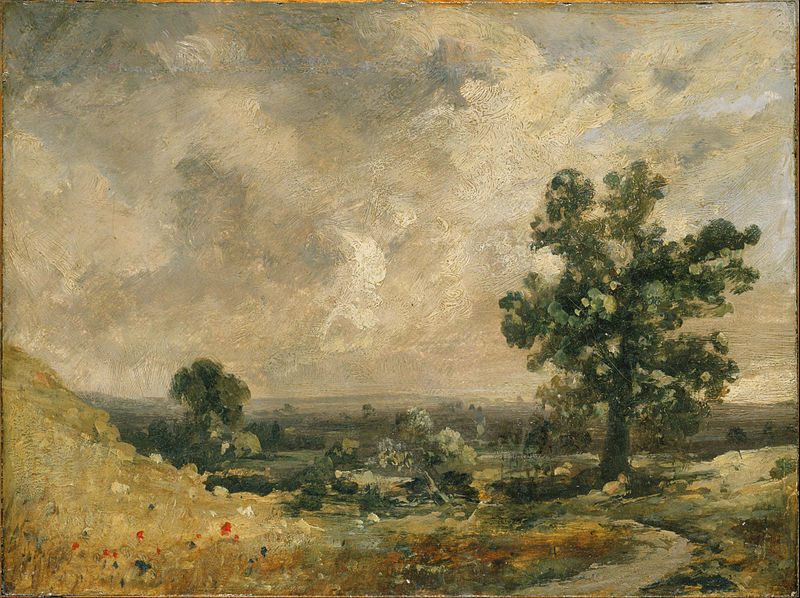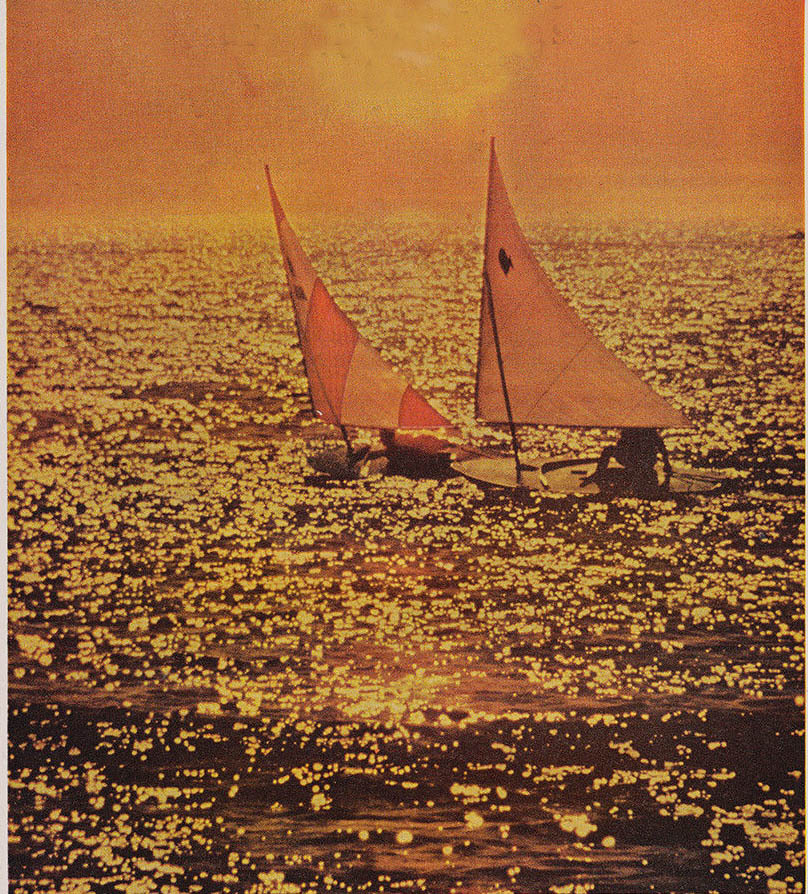29 April 2018
28 April 2018
27 April 2018
Seán Dagher, Nils Brown, Michiel Schrey, "Leave Her, Johnny"
Sean Dagher sings a good early-morning shower song ...
Three magical seconds, starting at :53.
Three magical seconds, starting at :53.
26 April 2018
Humility.
Flannery O'Connor
Happy birthday, Audubon.
Influenced.
If we put the last century;s notions of “old” and “new” in a broader historic perspective, it becomes clear how short-sighted these notions were and how wrong it was to give them an aura of absoluteness, since these notions are, by their very nature, relative and flexible, and dependent upon context. When the painter, architect and theorist Giorgio Vasari wrote his Lives of the Great Artists (1568), a collection of biographies of Italian artists, he had to explain when discussing Bramante, Raphael, and Michelangelo what he meant by “modern,” since he knew that his audience would have questions about the “strange” idea that artists explored subjects and aesthetic forms which were a thousand years old and presented them as “new.” The rediscovery of the culture of antiquity as a source of inspiration and as a standard of quality was felt, in Renaissance times, as something new and dynamic. The influence of the culture of antiquity can be traced back to the 12th century when conditions favoured a more refined and sophisticated civilisation. This was not the first wave of Renaissance thinking, for Charlemagne had already stimulated interest in antiquity in the early 9th century, in a spirit of constructive reform, after the worst of the barbarism of the 7th and 8th centuries had subsided. Later on, in the medieval world, Italy’s culture was dominated by northern and eastern influences and for many people at that time, “modern” meant the latest developments of medieval culture imported from the prosperous north, especially Flanders. The concept of a “modernity” based upon ideas from ages ago was still controversial, but for the intelligentsia the works of poetry, science, and the visual arts of the Greco-Roman world were all superior to anything produced by contemporary culture, and the presence of Roman monuments, mostly ruined, reminded the Italians of a glorious past and inspired them to dream of a possibly comparable future.
The Renaissance interest in antiquity as a civilising influence is something fundamentally different from modern thinking. In the 20th century, progress was understood as a confident leap into the future: a projected utopia, only made possible by a drastic break with the past. The Past stood for Reaction, and the Future for Progress. By comparison, the ideas of the artists of the Italian Renaissance gives us an opposite picture. Although the relatively immediate past – the Middle Ages (also known as the Dark Ages) – was felt to be stagnant, the future held the possibility of recreating a distant past from a mythological era, which had already profoundly influenced the European intelligentsia. This potential recreation was considered something much better than the art of the Dark Ages, when the arts and crafts of Antiquity had eroded and their secrets were lost.
Assuming that Vasari’s view upon the developments he describes reflected a broader consensus among the intellectual and artistic elite of his time, it is clear that the driving force behind the changes in the arts and architecture from the beginning of the Renaissance onwards, was an urge to do things better than before, not to be more advanced in the sense of being “more modern” and for that reason “better.” Vasari clearly sees “early” artists like Cimabue, Giotto, and Simone Martini as still rather awkward, trying their best, and achieving the best that was possible in their time, but beginning an upward line through Lorenzo Ghiberti, Filippo Brunelleschi, and Sandro Botticelli to the “perfection” of his own time with brilliant people like Michelangelo, Tiziano, and Raphael. So, in Renaissance time, being modern was the result of being better, while in the 20th century being better was the result of being modern – it may be clear that the latter idea is nonsensical because it rests upon an assumed historical position, while in the Renaissance “being better” was achieved through artistic quality, an attitude which was not incompatible with “looking back” if in earlier times sources of inspiration and great examples could be found. An expression like Arthur Rimbaud’s “Il faut être absolument moderne” would be unthinkable in the 16th century, because of expressing a historicist intention prior to the creation of the work of art.
Assuming that Vasari’s view upon the developments he describes reflected a broader consensus among the intellectual and artistic elite of his time, it is clear that the driving force behind the changes in the arts and architecture from the beginning of the Renaissance onwards, was an urge to do things better than before, not to be more advanced in the sense of being “more modern” and for that reason “better.” Vasari clearly sees “early” artists like Cimabue, Giotto, and Simone Martini as still rather awkward, trying their best, and achieving the best that was possible in their time, but beginning an upward line through Lorenzo Ghiberti, Filippo Brunelleschi, and Sandro Botticelli to the “perfection” of his own time with brilliant people like Michelangelo, Tiziano, and Raphael. So, in Renaissance time, being modern was the result of being better, while in the 20th century being better was the result of being modern – it may be clear that the latter idea is nonsensical because it rests upon an assumed historical position, while in the Renaissance “being better” was achieved through artistic quality, an attitude which was not incompatible with “looking back” if in earlier times sources of inspiration and great examples could be found. An expression like Arthur Rimbaud’s “Il faut être absolument moderne” would be unthinkable in the 16th century, because of expressing a historicist intention prior to the creation of the work of art.
25 April 2018
Waterwalker.
This feature-length documentary follows naturalist Bill Mason on his journey by canoe into the Ontario wilderness. The filmmaker and artist begins on Lake Superior, then explores winding and sometimes tortuous river waters to the meadow lands of the river's source. Along the way, Mason paints scenes that capture his attention and muses about his love of the canoe, his artwork and his own sense of the land.
Mason also uses the film as a commentary on the link between God and nature and the vast array of beautiful canvases God created for him to paint. Features breathtaking visuals and exciting whitewater footage, with a musical score by Bruce Cockburn.
Mason also uses the film as a commentary on the link between God and nature and the vast array of beautiful canvases God created for him to paint. Features breathtaking visuals and exciting whitewater footage, with a musical score by Bruce Cockburn.
Refreshment.
It was the forty-fathom slumber that clears the soul and eye and heart, and sends you to breakfast ravening. They emptied a big tin dish of juicy fragments of fish- the blood-ends the cook had collected overnight. They cleaned up the plates and pans of the elder mess, who were out fishing, sliced pork for the midday meal, swabbed down the foc'sle, filled the lamps, drew coal and water for the cook, an investigated the fore-hold, where the boat's stores were stacked. It was another perfect day - soft, mild and clear; and Harvey breathed to the very bottom of his lungs.
And now I am thinking of the poet Wordsworth, and the strange adventure that one night overtook him. When he was still a young boy, in love with summer and night, he went down to a lake, "borrowed" a rowboat, and rowed out upon the water. At first he felt himself embraced by pleasures: the moonlight, the sound of the oars in the calm water. Then, suddenly, a mountain peak nearby, with which he was familiar, or felt he was familiar, revealed, to his mind and eye, a horrifying flexibility. All crag and weight, it perceived him; it leaned down over the water; it seemed to pursue him. Of course he was terrified, and rowed hard, fleeing back across the water. But the experience led him, led his mind, from simple devotion of that beauty which is a harmony, a kindly ministry of thought, to nature's deeper and inexplicable greatness. The gleam and the tranquility of the natural world he loved always, and now he honored also the world's brawn and mystery, its machinations that lie beyond our understanding — that are not even nameable. What Wordsworth praised thereafter was more than the arrangement of concretions and vapors into appreciable and balanced landscapes; it was, also, the whirlwind. The beauty and strangeness of the world may fill the eyes with its cordial refreshment. Equally it may offer the heart a dish of terror. On one side is radiance; on another is the abyss.
Rudyard Kipling, from Captains Courageous
Repository.
Gregory Orr
CONNECT
Poke-in-the-eye.
... poke-in-the-eye shaped?
Purpose.
For each tribe of men Usen created He also made a home. In the land created for any particular tribe. He placed whatever would be best for the welfare of that tribe.
When Usen created the Apaches He also created their homes in the West. He gave to them such grain, fruits, and game as they needed to eat. To restore their health when disease attacked them He made many different herbs to grow. He taught them where to find these herbs, and how to prepare them for medicine. He gave them a pleasant climate and all they needed for clothing and shelter was at hand.
Thus it was in the beginning: the Apaches and their homes each created for the other by Usen himself. When they are taken from these homes they sicken and die. How long will it be until it is said, there are no Apaches?
Geronimo
Thank you, Clayton.
Happy birthday, Tchaikovsky.
Kuznetsov, Pyotr Ilyich Tchaikovsky, 1893
It is already a great thing if the main ideas and general outline of a work come without any racking of brains, as the result of that supernatural and inexplicable force we call inspiration. What I have set down in a moment of ardor I must then critically examine. Sometimes I must do myself violence before I can mercilessly erase things thought out with love.
Pyotr Ilyich Tchaikovsky
Viktoria Mullova performs the Violin Concerto in D, Op. 35; Maxim Shostakovich conducting the London Philharmonic Orchestra ...
It is already a great thing if the main ideas and general outline of a work come without any racking of brains, as the result of that supernatural and inexplicable force we call inspiration. What I have set down in a moment of ardor I must then critically examine. Sometimes I must do myself violence before I can mercilessly erase things thought out with love.
Pyotr Ilyich Tchaikovsky
Viktoria Mullova performs the Violin Concerto in D, Op. 35; Maxim Shostakovich conducting the London Philharmonic Orchestra ...
24 April 2018
Temper.
Cole, Mount Chocorua, New Hampshire, 1827
It is generally admitted that the liberal arts tend to soften our manners; but they do more--they carry with them the power to mend our hearts.
Poetry and Painting sublime and purify thought, by grasping the past, the present, and the future--they give the mind a foretaste of its immortality, and thus prepare it for performing an exalted part amid the realities of life. And rural nature is full of the same quickening spirit--it is, in fact, the exhaustless mine from which the poet and the painter have brought such wondrous treasures--an unfailing fountain of intellectual enjoyment, where all may drink, and be awakened to a deeper feeling of the works of genius, and a keener perception of the beauty of our existence. For those whose days are all consumed in the low pursuits of avarice, or the gaudy frivolities of fashion, unobservant of nature's loveliness, are unconscious of the harmony of creation--
Poetry and Painting sublime and purify thought, by grasping the past, the present, and the future--they give the mind a foretaste of its immortality, and thus prepare it for performing an exalted part amid the realities of life. And rural nature is full of the same quickening spirit--it is, in fact, the exhaustless mine from which the poet and the painter have brought such wondrous treasures--an unfailing fountain of intellectual enjoyment, where all may drink, and be awakened to a deeper feeling of the works of genius, and a keener perception of the beauty of our existence. For those whose days are all consumed in the low pursuits of avarice, or the gaudy frivolities of fashion, unobservant of nature's loveliness, are unconscious of the harmony of creation--
Heaven's roof to them Is but a painted ceiling hung with lamps; No more--that lights them to their purposes-- They wander 'loose about;' they nothing see, Themselves except, and creatures like themselves, Short lived, short sighted.
What to them is the page of the poet where he describes or personifies the skies, the mountains, or the streams, if those objects themselves have never awakened observation or excited pleasure? What to them is the wild Salvator Rosa, or the aerial Claude Lorrain?
There is in the human mind an almost inseparable connection between the beautiful and the good, so that if we contemplate the one the other seems present; and an excellent author has said, "it is difficult to look at any objects with pleasure--unless where it arises from brutal and tumultuous emotions--without feeling that disposition of mind which tends towards kindness and benevolence; and surely, whatever creates such a disposition, by increasing our pleasures and enjoyments, cannot be too much cultivated."
It would seem unnecessary to those who can see and feel, for me to expatiate on the loveliness of verdant fields, the sublimity of lofty mountains, or the varied magnificence of the sky; but that the number of those who seek enjoyment in such sources is comparatively small. From the indifference with which the multitude regard the beauties of nature, it might be inferred that she had been unnecessarily lavish in adorning this world for beings who take no pleasure in its adornment. Who in grovelling pursuits forget their glorious heritage. Why was the earth made so beautiful, or the sun so clad in glory at his rising and setting, when all might be unrobed of beauty without affecting the insensate multitude, so they can be "lighted to their purposes?"
It has not been in vain--the good, the enlightened of all ages and nations, have found pleasure and consolation in the beauty of the rural earth. Prophets of old retired into the solitudes of nature to wait the inspiration of heaven. It was on Mount Horeb that Elijah witnessed the mighty wind, the earthquake, and the fire; and heard the "still small voice"--that voice is YET heard among the mountains! St. John preached in the desert;--the wilderness is YET a fitting place to speak of God. The solitary Anchorites of Syria and Egypt, though ignorant that the busy world is man's noblest sphere of usefulness, well knew how congenial to religious musings are the pathless solitudes.
He who looks on nature with a "loving eye," cannot move from his dwelling without the salutation of beauty; even in the city the deep blue sky and the drifting clouds appeal to him. And if to escape its turmoil--if only to obtain a free horizon, land and water in the play of light and shadow yields delight--let him be transported to those favored regions, where the features of the earth are more varied, or yet add the sunset, that wreath of glory daily bound around the world, and he, indeed, drinks from pleasure's purest cup. The delight such a man experiences is not merely sensual, or selfish, that passes with the occasion leaving no trace behind; but in gazing on the pure creations of the Almighty, he feels a calm religious tone steal through his mind, and when he has turned to mingle with his fellow men, the chords which have been struck in that sweet communion cease not to vibrate.
In what has been said I have alluded to wild and uncultivated scenery; but the cultivated must not be forgotten, for it is still more important to man in his social capacity--necessarily bringing him in contact with the cultured; it encompasses our homes, and, though devoid of the stern sublimity of the wild, its quieter spirit steals tenderly into our bosoms mingled with a thousand domestic affections and heart-touching associations--human hands have wrought, and human deeds hallowed all around.
And it is here that taste, which is the perception of the beautiful, and the knowledge of the principles on which nature works, can be applied, and our dwelling-places made fitting for refined and intellectual beings.
If, then, it is indeed true that the contemplation of scenery can be so abundant a source of delight and improvement, a taste for it is certainly worthy of particular cultivation; for the capacity for enjoyment increases with the knowledge of the true means of obtaining it.
In this age, when a meager utilitarianism seems ready to absorb every feeling and sentiment, and what is sometimes called improvement in its march makes us fear that the bright and tender flowers of the imagination shall all be crushed beneath its iron tramp, it would be well to cultivate the oasis that yet remains to us, and thus preserve the germs of a future and a purer system. And now, when the sway of fashion is extending widely over society--poisoning the healthful streams of true refinement, and turning men from the love of simplicity and beauty, to a senseless idolatry of their own follies--to lead them gently into the pleasant paths of Taste would be an object worthy of the highest efforts of genius and benevolence. The spirit of our society is to contrive but not to enjoy--toiling to produce more toil-accumulating in order to aggrandize. The pleasures of the imagination, among which the love of scenery holds a conspicuous place, will alone temper the harshness of such a state; and, like the atmosphere that softens the most rugged forms of the landscape, cast a veil of tender beauty over the asperities of life.
Relax.
Tom Petty
This is dangerous, but worthwhile advice. -Ed.
Happy birthday, Library of Congress.
More good news ...
The papers of American scientist, statesman and diplomat Benjamin Franklin have been digitized and are now available online for the first time from the Library of Congress. The Library announced the digitization today in remembrance of the anniversary of Franklin’s death on April 17, 1790.CONNECT
Energy.
Rainer Maria Rilke
23 April 2018
Saw.
Constable, Cotswold Commons, n/d
A Bird came down the Walk—
He did not know I saw—
He bit an Angleworm in halves
And ate the fellow, raw,
And then he drank a Dew
From a convenient Grass—
And then hopped sidewise to the Wall
To let a Beetle pass—
He glanced with rapid eyes
That hurried all around—
They looked like frightened Beads, I thought—
He stirred his Velvet Head
Like one in danger, Cautious,
I offered him a Crumb
And he unrolled his feathers
And rowed him softer home—
Than Oars divide the Ocean,
Too silver for a seam—
Or Butterflies, off Banks of Noon
Leap, splashless as they swim.
Emily Dickinson
Untamed.
The wild is an integral part of who we are as children. Without pausing to consider what or where or how, we gather herbs and flowers, old apples and rose hips, shiny pebbles and dead spiders, poems, tears and raindrops, putting each treasured thing into the cauldron of our souls. We stir our bucket of mud as if it were, every single one, a bucket of chocolate cake to be mixed for the baking. Little witches, hag children, we dance our wildness, not afraid of not knowing.
But there comes a time when the kiss of acceptance is delayed until the mud is washed from our knees, the chocolate from our faces. Putting down our wooden spoon with a new uncertainty, setting aside our magical wand, we learn another system of values based on familiarity, on avoiding threat and rejection. We are told it is all in the nature of growing up. But it isn't so.
But there comes a time when the kiss of acceptance is delayed until the mud is washed from our knees, the chocolate from our faces. Putting down our wooden spoon with a new uncertainty, setting aside our magical wand, we learn another system of values based on familiarity, on avoiding threat and rejection. We are told it is all in the nature of growing up. But it isn't so.
Walking forward and facing the shadows, stumbling on fears like litter in the alleyways of our minds, we can find the confidence again. We can let go of the clutter of our creative stagnation, abandoning the chaos of misplaced and outdated assumptions that have been our protection. Then beyond the half light and shadows, we can slip into the dark and find ourselves in a world where horizons stretch forever. Once more we can acknowledge a reality that is unlimited finding our true self, a wild spirit, free and eager to explore the extent of our potential, free to dance like fireflies, free to be the drum, free to love absolutely with every cell of our being, or lie in the grass watching stars and bats and dreams wander by.
We can live inspired, stirring the darkness of the cauldron within our souls, the source, the temple of our true creativity, brilliant, untamed.
Emma Restall Orr
Happy birthday, Shakespeare.
Taylor, William Shakespeare, 1603
William Shakespeare was born on this day in 1564.
SONNET 116
Let me not to the marriage of true minds
William Shakespeare was born on this day in 1564.
SONNET 116
Let me not to the marriage of true minds
Admit impediments. Love is not love
Which alters when it alteration finds,
Or bends with the remover to remove.
O no! it is an ever-fixed mark
That looks on tempests and is never shaken;
It is the star to every wand'ring bark,
Whose worth's unknown, although his height be taken.
Love's not Time's fool, though rosy lips and cheeks
Within his bending sickle's compass come;
Love alters not with his brief hours and weeks,
But bears it out even to the edge of doom.
If this be error and upon me prov'd,
I never writ, nor no man ever lov'd.
William Shakespeare
I never writ, nor no man ever lov'd.
William Shakespeare
22 April 2018
Self-made.
Do what thy manhood bids thee do,
From none but self expect applause;
He noblest lives and noblest dies
Who makes and keeps his self-made laws.
All other Life is living Death,
A world where none but Phantoms dwell,
A breath, a wind, a sound, a voice,
A tinkling of the camel-bell.
Richard Francis Burton
Victoria.
Simon Russell Beale continues his Sacred Music journey in this special celebration marking the 400th anniversary of the death of the great Spanish Renaissance composer Tomas Luis de Victoria. In exploring the extraordinary world of this intensely spiritual man - musician, priest and mystic - Simon's travels take him to some of Spain's most stunning locations, from the ancient fortified city of Avila, with its medieval walls and glorious cathedral, to the magnificent El Escorial palace, where Philip II would listen to Victoria's music though a small door leading off his bedroom directly to the high altar of the Basilica.
In Madrid, Simon explores the dramatic religious paintings of Victoria's contemporary El Greco in the Prado Museum and visits the convent of Las Descalzas Reales, named after the barefoot nuns who worshipped there and where Victoria spent the final three decades of his life as choirmaster and organist.
The music is specially performed by Harry Christophers and The Sixteen in the church of San Antonio de los Alemanes, a hidden baroque jewel built in Victoria's lifetime in the heart of Madrid.
20 April 2018
Silence.
To deliver oneself up, to hand oneself over, entrust oneself completely to the silence of a wide landscape of woods and hills, or sea, or desert; to sit still while the sun comes up over that land and fills its silences with light. To pray and work in the morning and to labor and rest in the afternoon, and to sit still again in meditation in the evening when night falls up on that land and when the silence fills itself with darkness and with stars. To belong completely to such silence, to let it soak into the bones, to breathe nothing but silence, to feed on silence, and to turn the very substance of life into a living and vigilant silence.
Thomas Merton
Thomas Merton
19 April 2018
Classics.
Italo Calvino on the adventures, incrustations, distortions, expansions, and reincarnations of The Classics.
Cultural Offering carries a dispatch from the world of symbolism over substance.
Subscribe to:
Posts (Atom)
:format(jpeg):mode_rgb():quality(90)/discogs-images/R-9672745-1484539451-1105.jpeg.jpg)
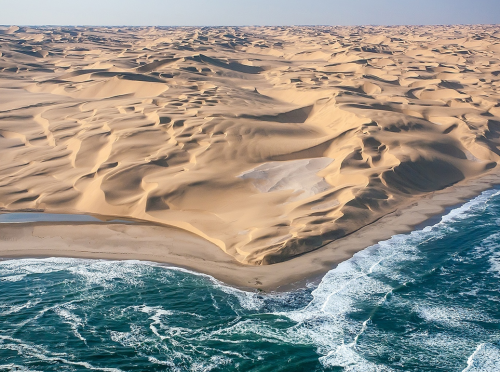










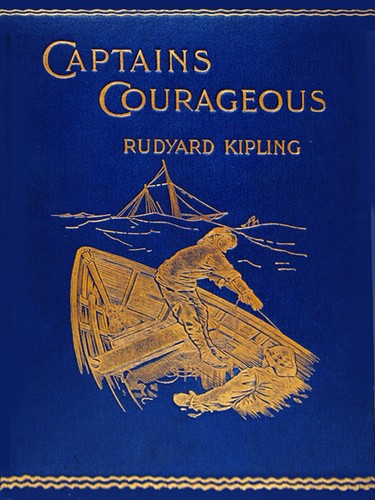




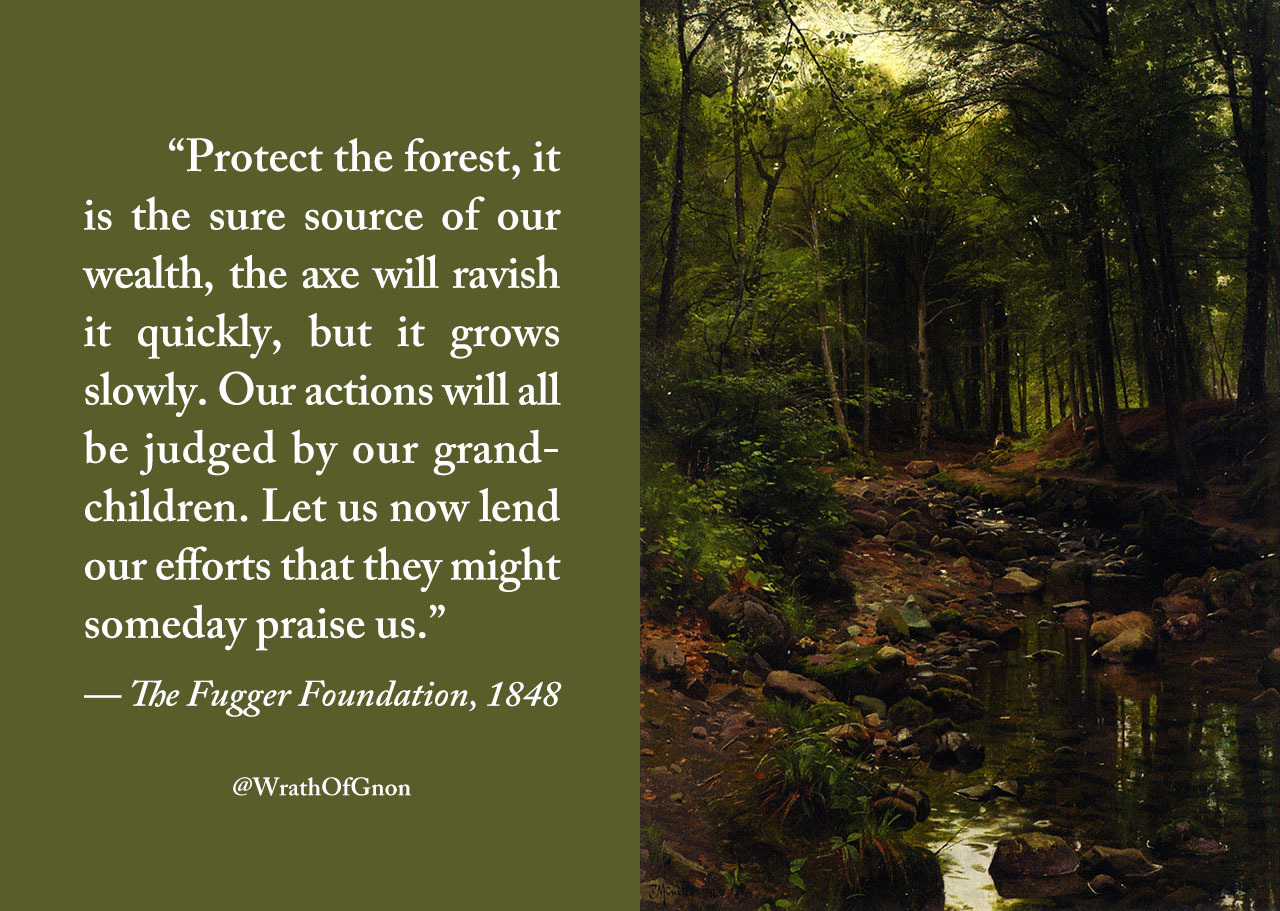
.jpg/300px-Portr%C3%A4t_des_Komponisten_Pjotr_I._Tschaikowski_(1840-1893).jpg)
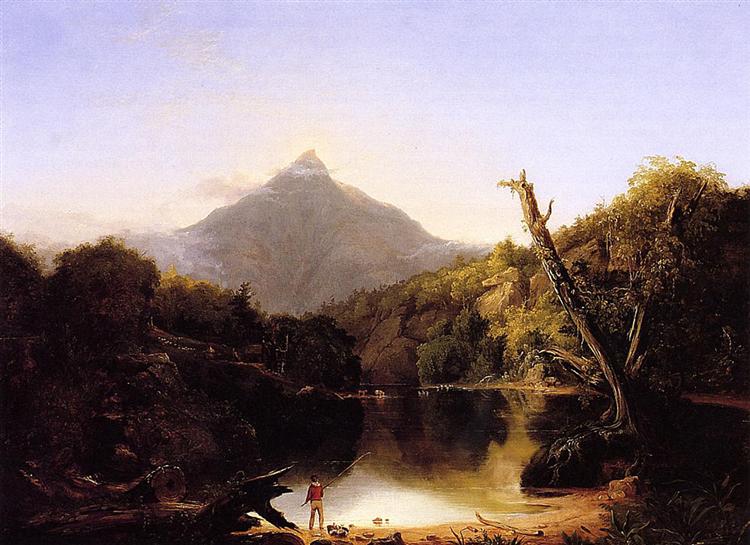


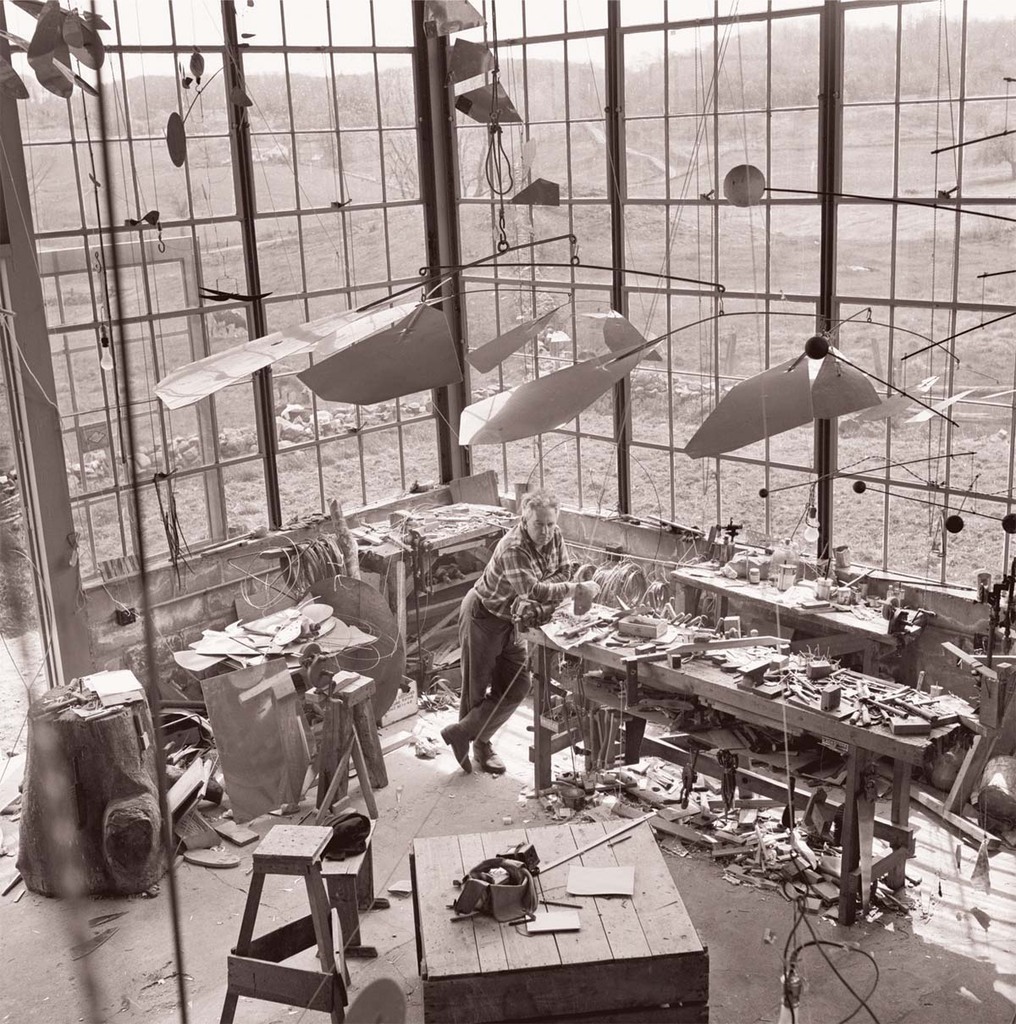


.jpg)
